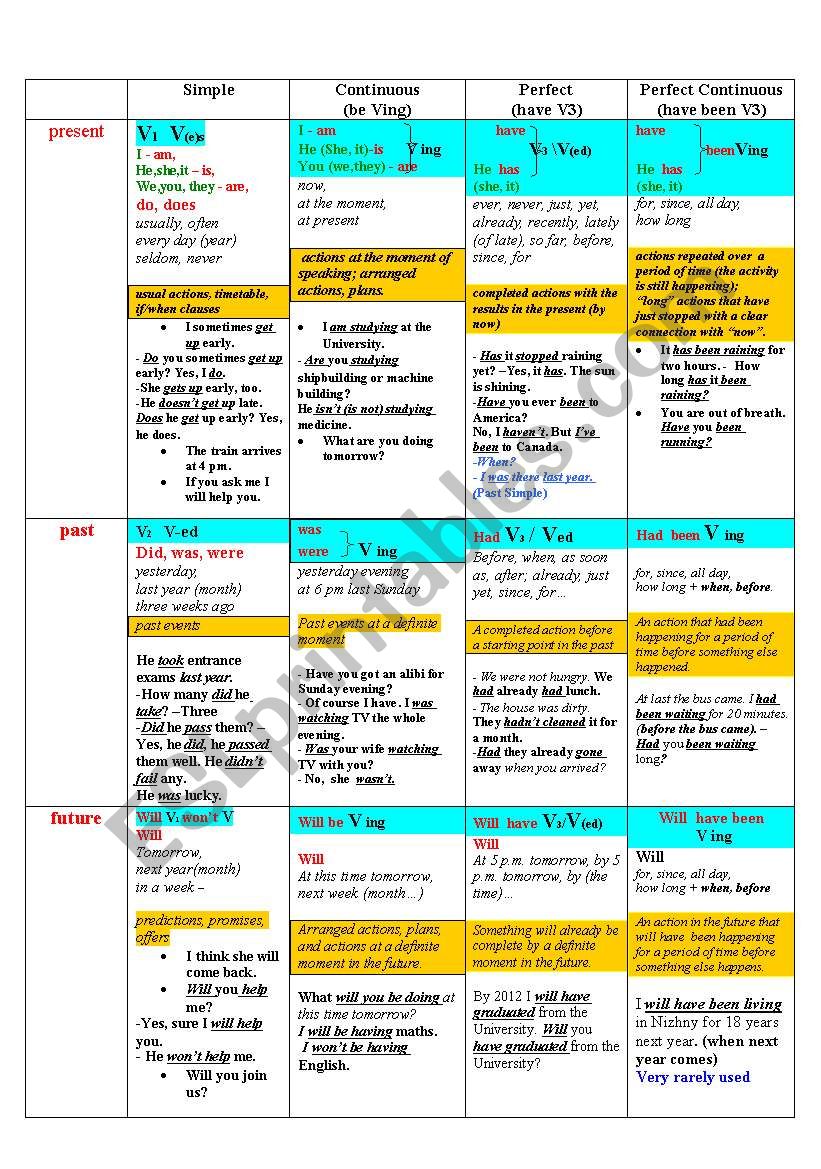

There are only three basic tenses in the English language: the past, the present, and the future. The most amazing thing about FluentU is that it’ll not just teach you how to understand tenses, it’ll show them to you as they’re used by native speakers! Give FluentU a free try and see for yourself.ĭownload: This blog post is available as a convenient and portable PDF that youĬan take anywhere. Start by breaking the information down into easier-to-understand chunks.įluentU takes real-world videos-like music videos, movie trailers, news and inspiring talks-and turns them into personalized language learning lessons. Learning English tenses can seem difficult at first, but all you need to do is remember a few sentence structures, and learn a few simple rules. Getting the tense wrong in a sentence can lead to confusion and misunderstandings. To understand why the two statements are different, you need to understand English tenses. Saying “I eat fish” is not the same as saying “I am eating fish.” They will not have been working for very long.By Yuliya Geikhman The Quick and Easy Guide to Learning English Grammar Tenses I had not been working for very long when they called. Will you have been working for 20 years in July? Had you been working for three hours when they called? I will have been working for 20 years this July. I had been working for three hours when they called about the event. Perfect Continuous Verb Tenses Table Perfect Continuous Tenses

Since 1988, today, for three hours, yet, recently…įor three hours, by the time Ĭontinuous Verb Tenses Table Continuous Tenses I will not have worked 80 hours by next Tuesday. Will you have worked 80 hours by next Tuesday? I will have worked 80 hours by next Tuesday.

** Simple Verb Tenses Table Simple Tenses **The following tables illustrate the English verb tenses for the verb ‘work’ in every form. Vs/Ves → Present Simple form for most verbs (goes) V3 → the third form (Past Participle) of an irregular verb V2 → the second form (Past Simple) of an irregular verb Present Simple, Past Perfect) to go to a more detailed post about its usage and examples.īe sure to bookmark this page, so you can easily click back when you need a reminder. You can also click on each verb tense (ex. In the tables below, we break down their usage in the affirmative, negative and question formats. The tenses are categorized into four different forms. The future tense describes things that have not happened yet.The past tense describes things that have already happened.The present tense describes things that are happening right now or things happening continuously.When it comes to English grammar, verb tenses describe at what point in time an action is taking place.


 0 kommentar(er)
0 kommentar(er)
